- Home
- H A CULLEY
The Fall of the House of Æthelfrith
The Fall of the House of Æthelfrith Read online
THE FALL OF THE HOUSE OF ÆTHELFRITH
By
H A Culley
Book five about the Anglo-Saxon Kings of Northumbria
Published by Orchard House Publishing
First Kindle Edition 2017
Text copyright © 2017 H A Culley
The author asserts the moral right under the Copyright, Designs and Patents Act 1988 to be identified as the author of this work.
All Rights Reserved. This book may not be reproduced in any form, in whole or in part, without written permission from the author.
Cover Image: © iStock/Jarih
Table of Contents
List of Principal Characters
Place Names
Glossary
PROLOGUE
PART ONE - ECGFRITH
Chapter One – The Disputed Throne
Chapter Two – The Battle of the Two Rivers
Chapter Three – Æthelthryth
Chapter Four – The Isle of Man
Chapter Five – The Battle of Loidis
Chapter Six – Two Weddings
Chapter Seven – The Last Days of Rheged
Chapter Eight – The Division of the Diocese
Chapter Nine – The Battle of the Trent
Chapter Ten – Wilfrid
Chapter Eleven – The Invasion of Hibernia
Chapter Twelve – The Battle of Dùn Nectain
PART TWO – ALDFRITH
Chapter Thirteen – Two Funerals
Chapter Fourteen – Wilfrid’s Rise and Fall
Chapter Fifteen – The Battle for Cumbria
Chapter Sixteen – Disaster in the North
Chapter Seventeen – The Return of the Exiles
Chapter Eighteen – The Usurper
PART THREE – THE LAST OF THEIR HOUSE
Chapter Nineteen – The Boy King
Chapter Twenty – Border Warfare
Chapter Twenty One – Swefred the Hereræswa
Chapter Twenty Two – Death of a Tyrant
Chapter Twenty Three - Cenred
Chapter Twenty Four – Osric the Good
Chapter Twenty Five – Epilogue
Author’s Note
Other Novels by H A Culley
About The Author
List of Principal Characters
(In alphabetical order)
Historical characters are shown in bold type
Æthelbald – Eldest son of Alweo, later King of Mercia
Æthelfrith – King of Bernicia from 593. First King of Northumbria. Reigned 604 to 616. Father of Oswald, Oswiu and five other children. Founder of the ruling house of Northumbria
Æthelwald Moll – King of Northumbria from 759 until 765 when he became a monk. His background in this novel is fictitious.
Alchfrith – Oswiu’s son by Rhieinmelth. (NOTE: Spelt Ehlfrith in earlier books but changed to the alternative spelling of Alchfrith in this book to save confusion with his brother Ecgfrith)
Aldfrith – Oswui’s eldest son (illegitimate)
Alaric – Catinus’ elder son
Alweo – Son of Eowa and nephew of the late King Penda of Mercia
Ælfflaed – Oswiu’s daughter by Eanflæd. Abbess of Whitby
Ælfwine – Oswiu’s younger son by Eanflæd. Later Sub-king of Deira
Æthelthryth – Ecgfrith’s first wife
Bruide – Son of the King of Prydenn, later High King of the Picts
Benoc – Ealdorman of Jarrow
Beorhtmund – Behrtfrith’s son
Beornheth - Cuthbert’s younger brother, the Eorl of Lothian
Behrt – His elder son
Behrtfrith – Beornheth’s younger son
Catinus – Briton born in Mercia who became Ealdorman of Bebbanburg
Cenred – Son of Cuthwin, later King of Northumbria
Coenred – King of Mercia from 704 AD
Conomultus – Catinus’ younger brother, Bishop of Abernethy in the Land of the Picts
Cuthbert – Prior, later Bishop, of Lindisfarne
Cuthburh – Aldfrith’s wife, Queen of Northumbria
Cuthwin – A thegn and descendant of King Ida of Bernicia
Domangart – King of Dalriada until 660
Drefan – Catinus’ body servant
Drest – High King of the Picts
Eadstan – Catinus’ military commander
Eata – Abbot of Lindisfarne
Ecgfrith – Oswiu’s son by Eanflæd. Sub-king of Deira 664 - 670. King of Northumbria 670 - 685
Edyth – Daughter of Benoc, Ealdorman of Jarrow
Elfin – King of Strathclyde
Eochaid – Son of Ruaidhrí and Edyth; named after his grandfather, King Eochaid of the Ulaidh.
Eormenburg – Second wife of Ecgfrith, possibly his mistress prior to their marriage
Ethelred – Penda’s third son. Later King of Mercia. Also spelt Æthelred in some sources
Godwyna – Daughter of Benoc of Jarrow. Edyth’s younger sister
Heartbehrt – Son of Alweo and Hereswith, captain of Eochaid’s warband; later King of Man
Hereswith – Catinus’ daughter, wife of Alweo
Kendra- Behrtfrith’s daughter, later Swefred’s wife
Leoflaed – Catinus’ wife and mother of Hereswith, Alric and Osfrid
Lethlobar – Son of the late Eochaid, King of the Ulaidh in Ulster
Mael Duin – King of Dalriada
Morcar – Reeve of Bebbanburg
Morleo – King of Ardewr
Octa - Hereræswa of Northumbria after Redwald
Osred – Aldfrith’s eldest son
Osric – Aldfrith’s youngest son
Osfrid – Catinus’ younger son
Osthryth – Oswiu’s daughter by Eanflæd. Later married to King Ethelred of Mercia
Otta – Aldfrith’s middle son, actually named Offa but the name has been changed in the novels to save confusion with King Offa of Mercia who appears later in the series
Rægenhere – Wilfrid’s younger brother and chaplain to Alchfrith
Redwald – Hereræswa of Northumbria
Ruaidhrí – The bastard son of King Eochaid of the Ulaidh and half-brother of Lethlobar
Sigmund – Leader of Osfrid’s gesith
Stepan – Ealdorman of Cumbria
Swefred – Osfrid’s younger son
Wilfrid - Bishop of Northumbria
Wulfhere – Penda’s second son, later King of Mercia
Uurad – A Pict. Catinus’ body servant, later commander of Osfrid’s warband. Also the name of his son, the captain of Swefred’s gesith.
Place Names
(In alphabetical order)
I find that always using the correct place name for the particular period in time may be authentic but it is annoying to have to continually search for the modern name if you want to know the whereabouts of the place in relation to other places in the story. However, using the ancient name adds to the authenticity of the tale. I have therefore compromised by using the modern name for places, geographical features and islands, except where the ancient name is relatively well known, at least to those interested in the period, or else is relatively similar to the modern name. The ancient names used are listed below:
Amorica – Brittany and part of Normandy, France
Béal Feirste – Belfast, Northern Ireland
Bebbanburg – Bamburgh, Northumberland, North East England
Bernicia – The modern counties of Northumberland, Durham, Tyne & Wear and Cleveland in the North East of England. At times Goddodin was a subsidiary part of Bernicia
Berwic – Berwick upon Tweed, Northumberland
Bremetennacum – Ribchester, Lancashire
Caerlleon – Chester, Cheshire
Caer Luel – Carlisle, Cumbria
Caledonia - Scotland
Cantwareburg – Canterbury, Kent
Dalriada – Much of Argyll and the Inner Hebrides
Deira – Most of North Yorkshire and northern Humberside
Duboglassio – Douglas, Isle of Man
Dùn Add – Dunadd, near Kilmartin, Argyll, Scotland. Capital of Dal Riata.
Dùn Barra - Dunbar, Scotland
Dùn Breatainn - Literally Fortress of the Britons. Dumbarton, Scotland
Dùn Dè – Dundee, Tayside, Scotland
Dùn Èideann - Edinburgh
Dùn Nectain – Location disputed but probably Dunnichen in Angus, Scotland
Eoforwīc - York
Elmet – West Yorkshire
Frankia – The territories inhabited and ruled by the Franks, a confederation of West Germanic tribes, approximating to present day France and a large part of Germany.
German Ocean – North Sea
Glaschu – Glasgow, Scotland
Gleawecastre – Gloucester
Goddodin – The area between the River Tweed and the Firth of Forth; i.e. the modern regions of Lothian and Borders in Scotland. Later called Lothian.
Gwynedd – North Wales including Anglesey
Hibernia - Ireland
Isurium Brigantum - Aldborough in Yorkshire
Kinneddar – Lossiemouth, Moray, Scotland
Lindocolina – Lincoln, Lincolnshire
Loidis – Leeds, Yorkshire
Luncæster – Lancaster, Lancashire
Lundenwic – London
Mamucium – Roman name for Manchester
Mercia – Roughly the present day Midlands of England
Northumbria – Comprised Bernicia, Elmet and Deira. At times it also included Rheged and Goddodin
Orcades – The Orkney Islands, Scotland
Pictland – The confederation of kingdoms including Shetland, the Orkneys, the Outer Hebrides, Skye and the Scottish Highlands north of a line running roughly from Skye to the Firth of Forth
River Twaid – The river Tweed, which flows west from Berwick through northern Northumberland and the Scottish Borders.
Rheged - A kingdom of Ancient Britons speaking Cumbric, a Brythonic language similar to Old Welsh, which roughly encompassed modern Lancashire, Cumbria in England and, at times, part of Galloway in Scotland
Rhumsaa – Ramsay, Isle of Man
Strathclyde – South east Scotland
Wintan-ceastre – Winchester, Hampshire
Glossary
Ætheling – Literally ‘throne-worthy. An Anglo-Saxon prince.
Birlinn – A wooden ship similar to the later Scottish galleys. Usually with a single mast and square rigged sail, they could also be propelled by oars with one man to each oar.
Brenin – The Brythonic term by which kings were addressed Wales, Strathclyde and the Land of the Picts.
Bretwalda - In Anglo-Saxon England, an overlord or paramount king accepted by other kings as their leader
Ceorl - Freemen who worked the land or else provided a service or trade such as metal working, carpentry, weaving etc. They ranked between thegns and slaves and provided the fyrd in time of war
Currach - A boat, sometimes quite large, with a wooden frame over which animal skins or hides are stretched and greased to make them waterproof
Custos – A guardian or custodian, the word was used in a variety of contexts including to mean one left in charge in the absence of the lord or king
Cymru - Wales
Cyning – Old English for king and the term by which they were normally addressed
Eorl – A noble ranking between thegn and members of the royal house. In the seventh century it meant the governor of a division of the kingdom. Later replaced by ealdorman, the chief magistrate and war leader of a shire, and earl, the ruler of a province under the King of All England; for example, Wessex, Mercia and Northumbria
Gesith – The companions of a king, usually acting as his bodyguard
Hereræswa – Military commander or general. The man who commanded the army of a nation under the king
Knarr - A merchant ship where the hull was wider, deeper and shorter than that of a birlinn
Seax – A bladed weapon somewhere in size between a dagger and a sword. Mainly used for close-quarter fighting where a sword would be too long and unwieldy
Thegn – The lowest rank of noble. A man who held a certain amount of land direct from the king or from a senior nobleman, ranking between an ordinary freeman and an eorl
Ulaidh - A confederation of dynastic-groupings that inhabited a provincial kingdom in Ulster (north-eastern Ireland) and was ruled by the Rí Ulad or King of the Ulaidh. The two main tribes of the Ulaidh were the Dál nAraidi and the Dál Fiatach
Uí Néill – A Hibernian clan who claimed descent from Niall Noigiallach (Niall of the Nine Hostages), a historical King of Tara who died about 405 AD
Settlement – Any grouping of residential buildings, usually around the king’s or lord’s hall. In 7th century England the term city, town or village had not yet come into use
Síþwíf - My lady in Old English
Stipend – (in this context) Income received from a diocese or a monastery
Weregeld – In Anglo-Saxon England, if property was stolen, or someone was injured or killed, the guilty person would have to pay weregeld as restitution to the victim's family or to the owner of the property
Witan – The council of an Anglo-Saxon kingdom. Its composition varied, depending on the matters to be debated. Usually it consisted of the Eorls and the chief priests (bishops and abbots in the case of a Christian kingdom), but for the selection of a king or other important matters, it would be expanded to include the more minor nobility, such as the thegns
Villein - A peasant (tenant farmer) who was legally tied to his vill
Vill - A thegn’s holding or similar area of land in Anglo-Saxon England which might otherwise be described as a parish or manor
PROLOGUE
604 AD
‘You must flee. King Æthelfrith is nearly at the gates and our men are too frightened to deny him entry.’
Ethelric, King of Deira, was indecisive at the best of times and his younger brother, Edwin, lost patience with him.
‘I am leaving here with my family before it’s too late; if you’re sensible you’ll come with us.’
‘But I can’t abandon Eoforwīc. If Æthelfrith captures our capital he’ll crown himself King of Deira.’
‘He’ll do that anyway. We’ve been defeated in the field and we don’t have the men to hold the place against him. He’ll find it a lot easier to be recognised as king if you’re dead.’
Ethelric shuddered. He was well aware that he was no warrior and he should have listened to Edwin when he told him he was walking into a trap two weeks ago when he advanced to defend his borders. As it was Æthelfrith, the king of neighbouring Bernicia, had out manoeuvred him and his army had been routed.
He might not be a good commander but he was a proud man and his conscience wouldn’t let him abandon Eoforwīc. Edwin looked at him with exasperation.
‘Good luck, brother. I must go. At least one of us must live to recover our birth right in more propitious times.’
The two men embraced before Edwin left Ethelric sitting on his lonely throne.
After a while Ethelric stirred from his lethargy and called for a servant to summon the captain of his gesith and the hereræswa of his army. The boy, one of the few who had remained at his post in the king’s hall, looked bewildered.
‘Cyning, don’t you remember? They were both killed at the Battle of the Tees.’
The king looked at him in incomprehension for a minute. Then he remembered and he started to sob. This unnerved the boy even more.
‘Is there anything else I can do, Cyning?’ the boy asked nervously.
‘Do you know who is in charge of the garrison no
w?’
‘No, Cyning. I’ll go and find out,’ the boy said brightly, glad of the excuse to leave the presence of his pathetic king.
However, the boy did no such thing and joined the rest of the population in their flight through the southern gates. When Æthelfrith rode in from the north he found the place deserted. Like all large settlements the streets were ankle deep in filth and mud. The stench of rotting matter, urine and faeces was pungent but he hardly noticed. He hadn’t washed for days and his tunic, trousers and byrnie were stained black with other people’s blood.
He dismounted outside the king’s hall and, accompanied by his gesith, he entered. Ethelric had remained sitting on his throne at the far end and barely looked up as the group of armed men entered.
Æthelfrith marched up to his fellow king and, without a pause, he thrust his sword into Ethelric’s chest. The proud king of Deira toppled from his throne, rolled down the three steps of the dais and lay spread-eagled on the straw covered dirt floor, blood seeping from the gaping wound to stain the front of his white tunic a deep crimson. A great cheer went up from the Bernician warriors who had crowded into the hall.
‘All hail, Æthelfrith, King of Bernicia and Deira,’ one called out.
‘No, not Bernicia and Deira; not any more. King of all the lands north of the River Humber,’ he corrected him. ‘King of Northumbria.’
‘May your house rule Northumbria for many centuries,’ one his eorls called out.
‘Nay, your house is doomed.’
The voice came from behind the throne and an old woman hobbled into view, bent over and leaning on a stick.
‘Be warned, Æthelfrith, you are a regicide and you will pay for your crime for three generations. Brother will kill brother and uncle will kill nephew until your house becomes extinct.’
The king recoiled from the old crone’s curse and a deathly hush descended on the hall. Then, from the front ranks of the watching men, an arrow flew to strike the harridan in the throat. She gurgled and tried to pull it free but it was a mortal wound and she dropped dead beside Ethelric.

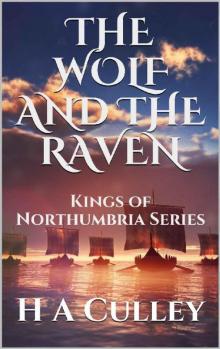 The Wolf and the Raven
The Wolf and the Raven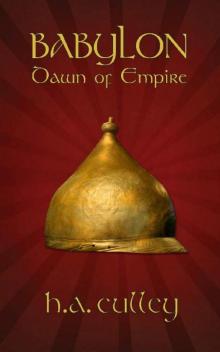 Dawn of Empire
Dawn of Empire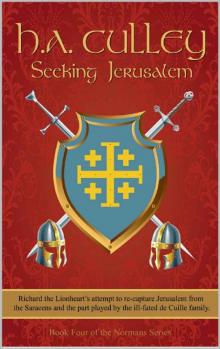 Seeking Jerusalem
Seeking Jerusalem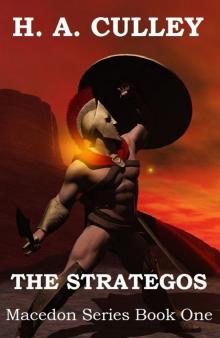 The Strategos
The Strategos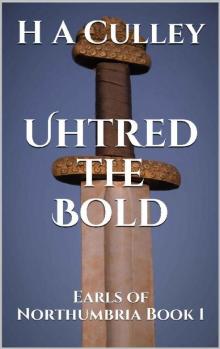 Uhtred the Bold
Uhtred the Bold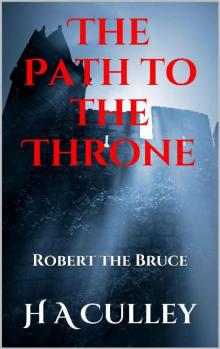 The Path to the Throne
The Path to the Throne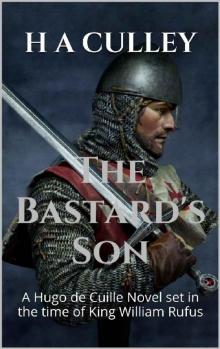 The Bastard's Son
The Bastard's Son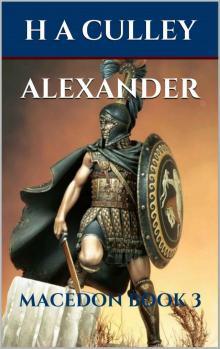 Alexander
Alexander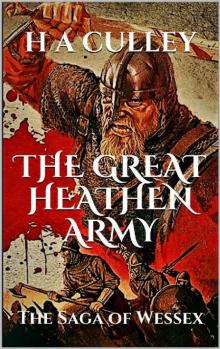 The Great Heathen Army
The Great Heathen Army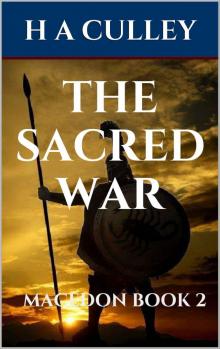 The Sacred War
The Sacred War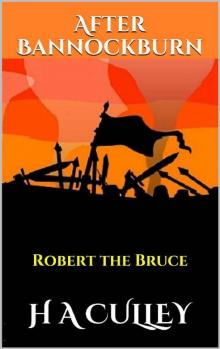 After Bannockburn
After Bannockburn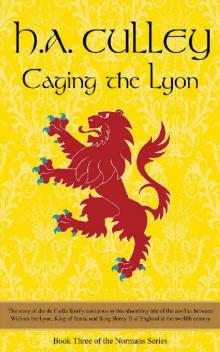 Caging the Lyon
Caging the Lyon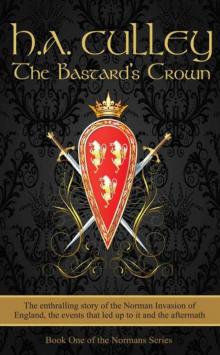 The Bastard's Crown
The Bastard's Crown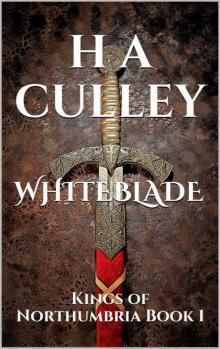 WHITEBLADE
WHITEBLADE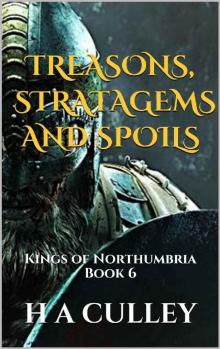 TREASONS, STRATAGEMS AND SPOILS: Kings of Northumbria Book 6
TREASONS, STRATAGEMS AND SPOILS: Kings of Northumbria Book 6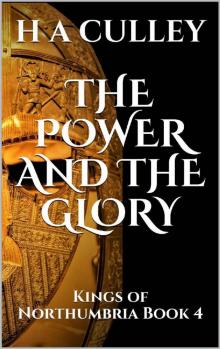 THE POWER AND THE GLORY: Kings of Northumbria Book 4
THE POWER AND THE GLORY: Kings of Northumbria Book 4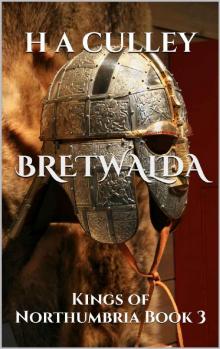 BRETWALDA: Kings of Northumbria Book 3
BRETWALDA: Kings of Northumbria Book 3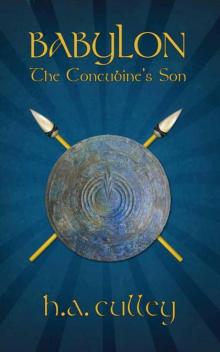 The Concubine's Son
The Concubine's Son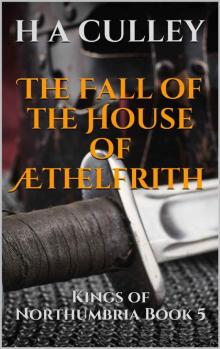 The Fall of the House of Æthelfrith: Kings of Northumbria Book 5
The Fall of the House of Æthelfrith: Kings of Northumbria Book 5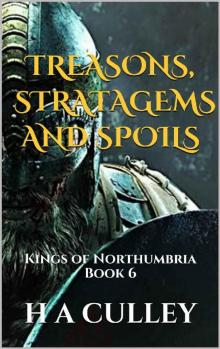 TREASONS, STRATAGEMS AND SPOILS
TREASONS, STRATAGEMS AND SPOILS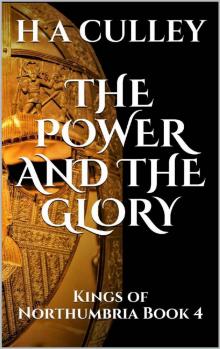 THE POWER AND THE GLORY
THE POWER AND THE GLORY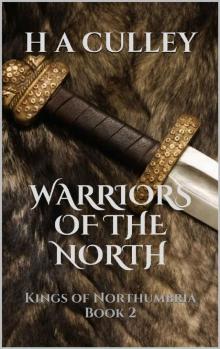 WARRIORS OF THE NORTH
WARRIORS OF THE NORTH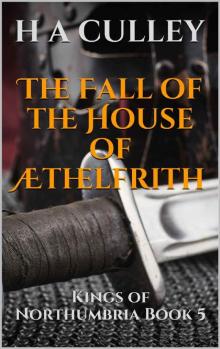 The Fall of the House of Æthelfrith
The Fall of the House of Æthelfrith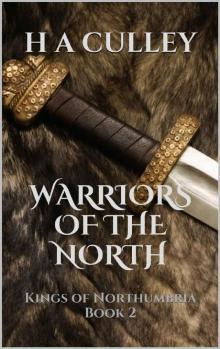 WARRIORS OF THE NORTH: Kings of Northumbria Book 2
WARRIORS OF THE NORTH: Kings of Northumbria Book 2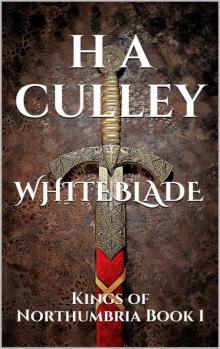 WHITEBLADE: Kings of Northumbria Book 1
WHITEBLADE: Kings of Northumbria Book 1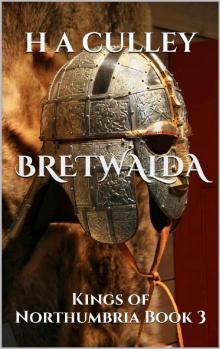 BRETWALDA
BRETWALDA